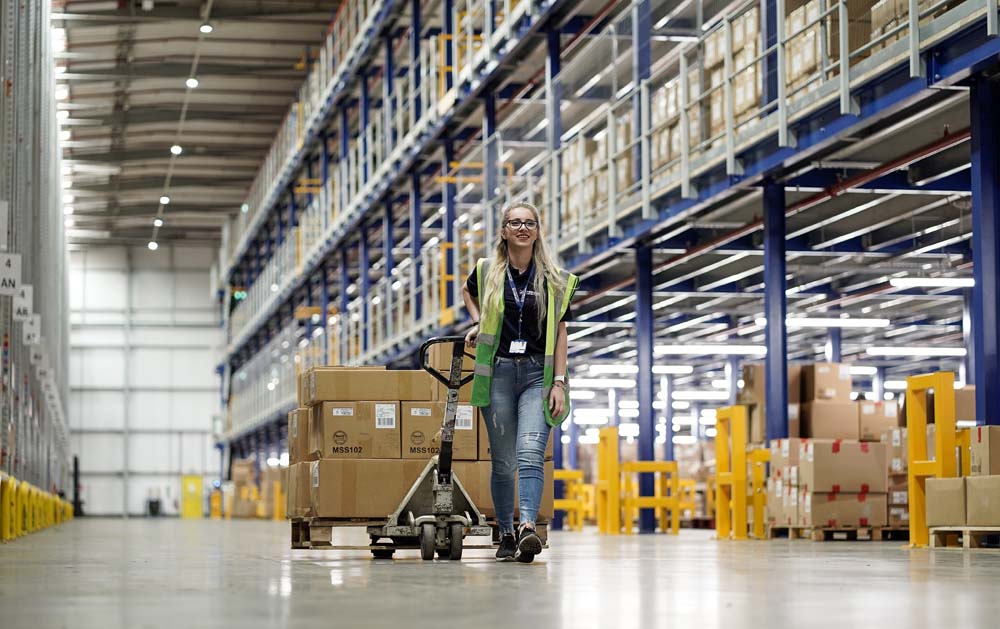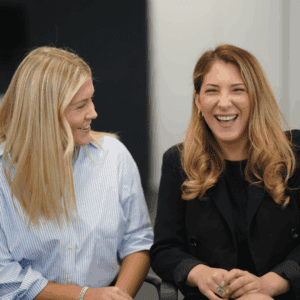Third-party logisitics specialist Rhenus Warehousing Solutions Lutterworth is helping fashion retailers cope with a high rate of returned items during the ongoing e-commerce boom, in a way that is sustainable, efficient and affordable.
Since the COVID-19 pandemic especially, many consumers have moved away from visiting high streets and shopping centres and physically sifting through racks of clothes, to browsing items from the comfort of their own homes and making purchases at the click of a button.
The boom in e-commerce and online shopping has seen the fashion sector now having to deal with a higher rate of returned items, sometimes up to 40%. In late 2020, consumers were returning around 17% of clothing bought online.
In response to this increased demand, industry leader Zara has recently introduced a charge of £1.95 for UK customers to return online orders to third-party delivery points, and it’s likely that other global brands will soon follow suit.
Reducing their carbon footprint and working in ways that are environmentally friendly are at the forefront of retailers’ minds, as many consumers are now specifically seeking brands who are sustainable and conscious of their global impact.

Rhenus Warehousing Solutions Lutterworth is helping retailers put measures in place to reduce returns, in order to drive sustainability and break the fast-fashion mould.
Kerry Delaney, Managing Director at Rhenus Warehousing Solutions Lutterworth, said:
“Across our distribution centres, we are able to process returns in a way that is reliable, fast, cost effective and, most importantly, environmentally friendly.
“The use of experienced fashion operatives and the development of innovative solutions and automation can guarantee an increase in delivery speeds, from retailer to consumer and back again, ensuring that stock is able to be quickly returned to sale. From a cost perspective, evolving these systems will also provide retailers with a more beneficial, long-term solution.
“However, the real way that retailers will survive this new era of fast, online fashion is by implementing innovative solutions to avoid a high level of returns in the first place, such as AI driven technology to predict an accurate fit of garments, assisting the purchase decision of the consumer.”

The common practice of ‘bracketing’ clothing purchases online is damaging to both retailers’ profit margins and the environment as, once returned, purchases enter the reverse supply chain and often end up in landfill. Overall, this transportation process contributes 15m metric tons of carbon dioxide into the atmosphere.
Bracketing, along with other negative habits, is a consumer behaviour which Zara are taking the bold step to discourage.
Kerry continued:
“Brands can avoid high levels of returns by working to improve product descriptions, as the main reason items are returned is due to them not fitting or meeting expectations. If shoppers are provided with more detailed information, measurements and realistic photography, they will be less likely to need to order one garment in multiple sizes.
“Another major reason that clothing is returned is due to consumers buying an item, wearing it once and then returning it. By adding a small charge, shoppers will be dissuaded from making spur-of-the-moment purchases, and instead only buy garments they are certain they’ll want to keep long term.”
Research commissioned by Retail Economics and Penningtons Manches Cooper has shown that 46% of shoppers who return products prefer the convenience of returning unwanted items to physical stores. If retailers can capitalise on this, by offering a positive returns experience and encouraging consumers to visit stores in-person, fewer and fewer returns will be made online.
Kerry added:
“Focusing on brand loyalty and providing consumers with excellent customer service, and a more personalised experience, will slowly but surely result in shoppers having less desire to bulk buy and return unwanted items.
“This is a key moment for fashion brands to secure their place as the retailer of choice in a demanding, digital world, and at Rhenus we’re on hand to offer all our support and expertise.”
Rhenus Warehousing Solutions Lutterworth has over 30 years’ experience working with high-profile brands such as Marks and Spencer, and handles hundreds of millions of fashion items per annum.
To find out how Rhenus Warehousing Solutions Lutterworth can help your business, call 01455 200700 or email wslutterworth@rhenus.com.













